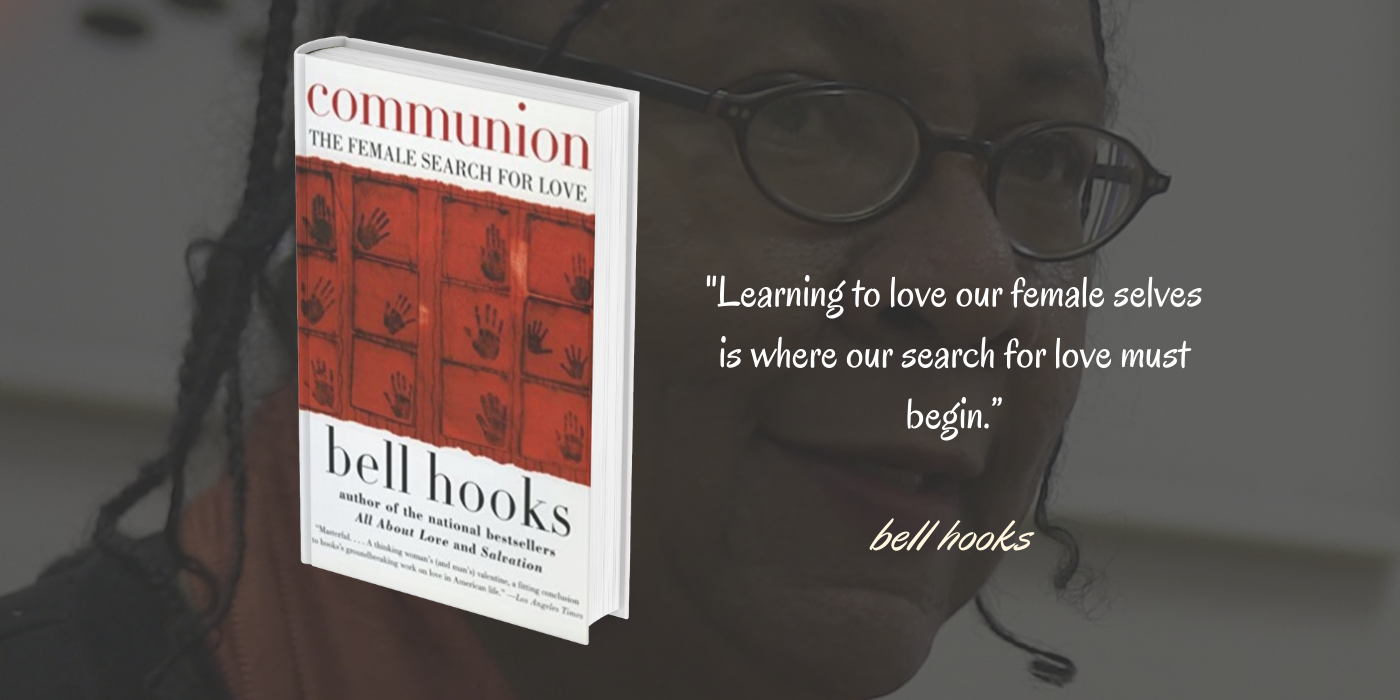When I first read bell hooks, I felt she had the answer to all the questions that a modern-day woman can have. Her books provided solace to people like me who find relief in feminist ideologies while dealing with everyday life obstacles. She wrote with such lucidity which often sounds like an elder sister tending to our young hearts. I was introduced to hooks through her legendary work Communion: The Female Search for Love, a book that helped me look at life from an altogether different perspective.
In a patriarchal world where women are taught to make themselves presentable to be liked by men, hooks provide a deep introspection towards self-love and a feminist way of looking at love, especially for young women who might have a hard time fitting in. In the book, she writes:
“All too often women believe it is a sign of commitment, an expression of love, to endure unkindness or cruelty, to forgive and forget. In actuality, when we love rightly, we know that the healthy, loving response to cruelty and abuse is putting ourselves out of harm’s way.”
Anyone reading this will feel the warmth and love for hooks’ ideas which she wrote for young women so that they assume the duty of self-fulfillment. In this regard, she further writes:
“The one person who will never leave us, whom we will never lose, is ourselves. Learning to love our female selves is where our search for love must begin.”
Growing up in a strict Baptist household, hooks had been accustomed to the cis-heterosexual marriage in which she found that women did not have a say. These marriages, no matter how worn out they had become, were meant to survive for a lifetime. It was through feminism that she learnt to question the notions of heterosexual marriages and found out that not only men but women could also romantic partners for women. hooks decided never to get married, especially because she saw her mothers and grandmothers become victimised in their own respective marriages. She remembered her father as a man who hardly spoke to his daughters, and his presence in the house meant that everything had to be kept prim and proper so that it did not anger him.
Many of my feminist friends, including myself, often find ourselves introspecting as to whether we truly understand feminism, the ideology which helps us liberate ourselves at every stage of our lives. Since we all grew up in a society with deep-rooted patriarchal ideas and values, we often ask ourselves – whether we can claim ourselves to be feminists?
But when I first read bell hooks, her ideas intrigued me in terms of how she accepted her faults and how she was not ashamed to own up to them. She wrote in such a way that people reading her works today don’t beat themselves up for making human errors in the process of becoming a feminist. I learnt that as long as we are accountable for our actions, mistakes are very much a part of becoming a feminist.
The most interesting part of discovering bell hooks has been the way she has spoken about the gaps in feminist ideology. While becoming attached to any ideology, we almost take it to be sacrosanct. hooks, on the other hand, doesn’t take such a stance. She writes:
“Feminist critiques of love made it difficult for progressive, powerful women to speak about the place of love in our lives, while Feminist thinkers were right to rip apart and throw away out-moded patriarchal ways of thinking about love and romance, girls and women still need to fill the gap with new liberatory visions full of hope and promise.”
Reading bell hooks is an amazing journey, she has inspired women from around the world to leave their shackles in a male-dominated world and embark upon a journey of self-fulfillment. Her most famous book Feminism is for Everybody is the stepping stone for all aspiring feminist activists around the world. Her ideas are an inspiration for many young adults seeking to enter colleges and universities as well as women who are segregated in the society for reaching “midlife”.
hooks passed away on December 15, 2021, at the age of 69, leaving a deep sense of personal loss for intersectional feminist activists around the world. My only request to young readers is, read bell hooks, and become a part of her powerful journey which will be an invaluable asset to your life. May her ideas continue to inspire many, just like it has done for me.
Rest in power, bell hooks!
Nayanika Datta is currently pursuing Sociology from Jadavpur University in Kolkata with experience in caste, political and gender-based activism for three years now. She is currently in her final year of post-graduation. She originally hails from Kolkata.
Featured image credit: Amazon, Wikimedia Commons; Editing: LiveWire/Tanya Jha

